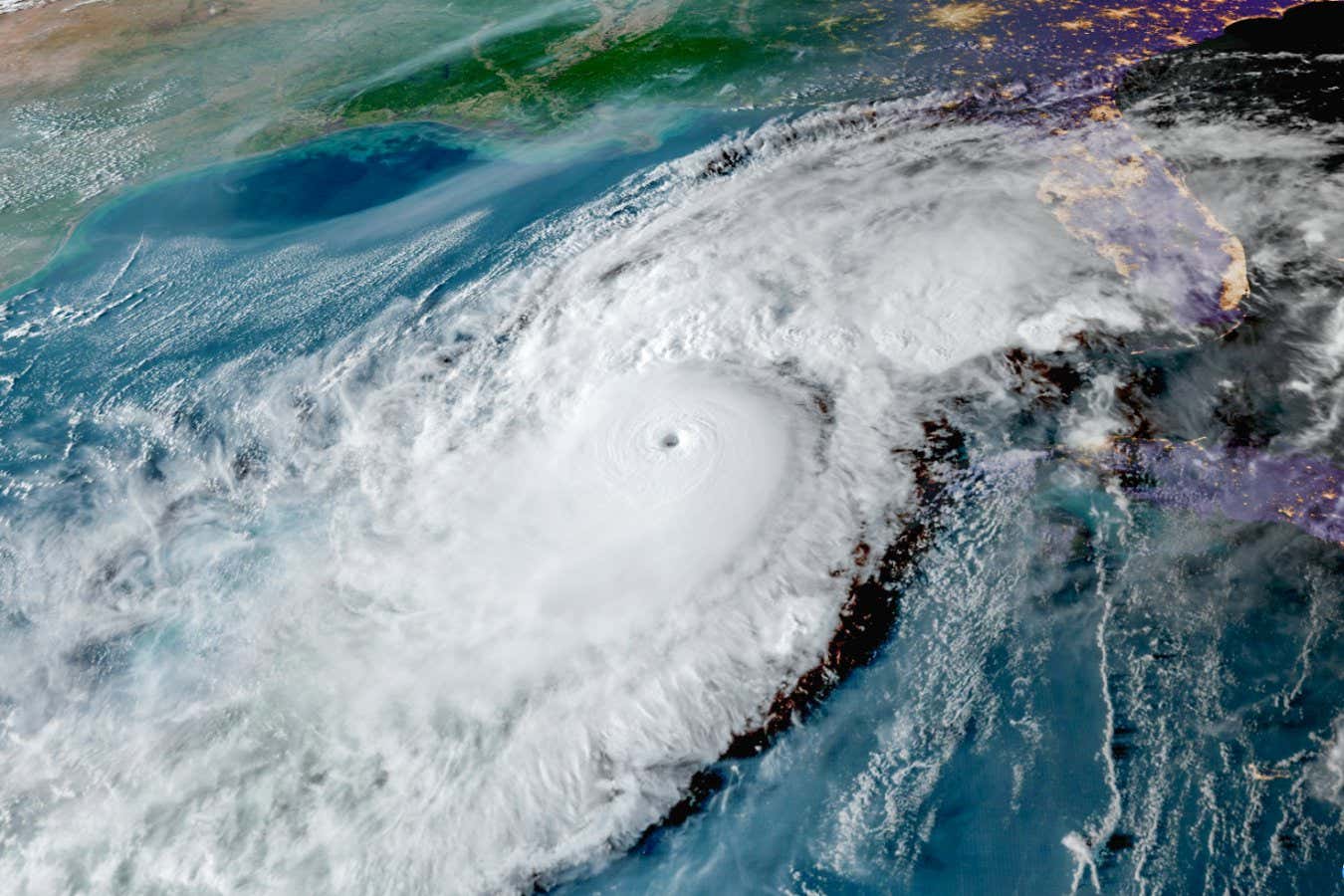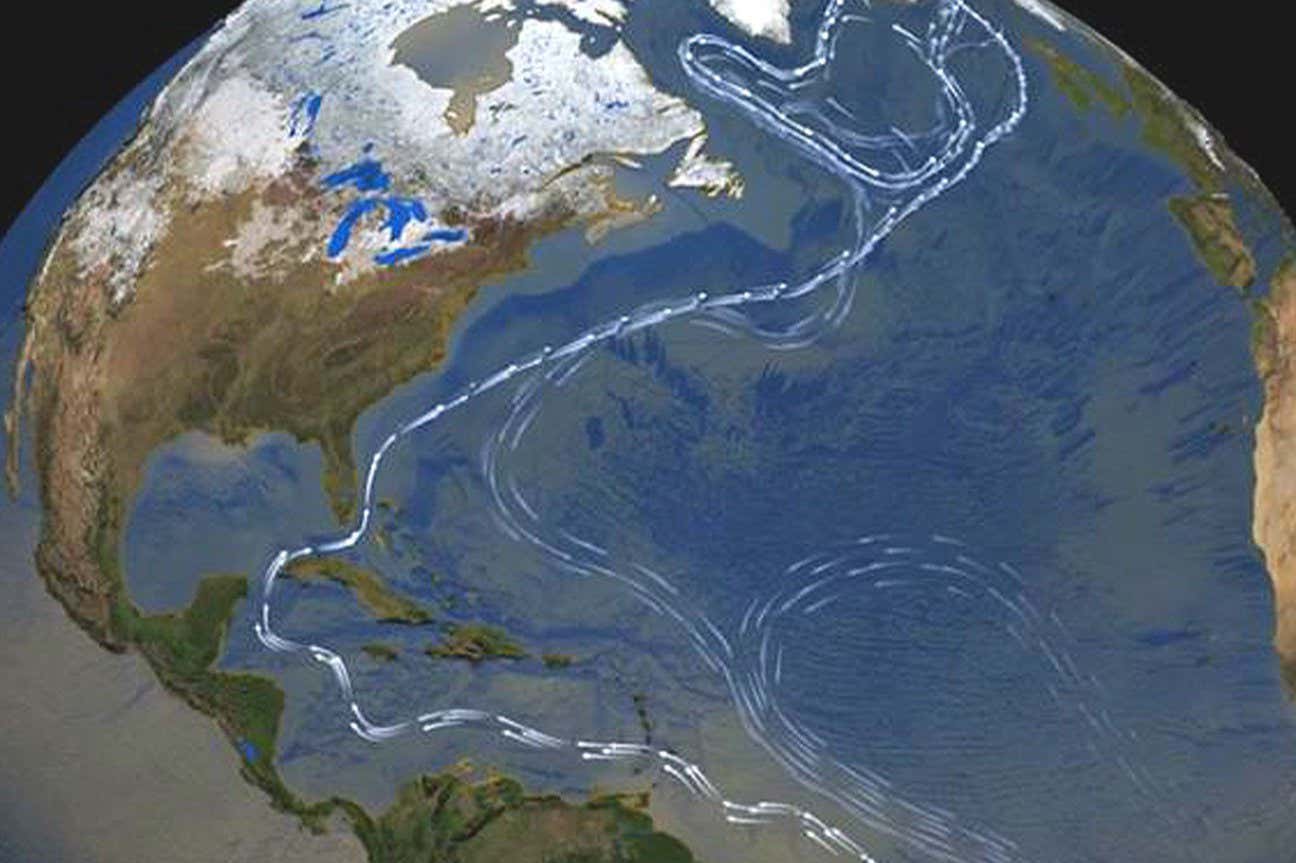Hotter seas can lead to more intense storms, such as Hurricane Milton in 2024 NOAA
Extreme marine heat recorded since 2023 might herald the start of a regime shift in the world’s oceans that poses a grave threat to life on Earth, scientists have warned.
Record-breaking marine heatwaves emerged in the North Atlantic and Pacific oceans in 2023 and were unprecedented in their severity, endurance and geographical scale, with many lasting well over a year.
Advertisement
The heatwaves helped push sea surface temperatures to record-breaking levels around the world in 2023 and 2024, driving extreme warmth and dangerous weather on land and contributing to both years being declared consecutively as the hottest on record.
“We’ve had progressive warming of our oceans over the last 40 to 50 years, but 2023 was a breakout year, with large-scale marine heatwaves affecting so many different locations,” says Matthew England at the University of New South Wales in Australia.
Sea surface temperatures globally are still at near-record levels, and currently the Mediterranean Sea is in the grip of a marine heatwave with water temperatures as much as 5°C (9°F) above normal for the time of year.
Free newsletter
Sign up to The Earth Edition
Unmissable news about our planet, delivered straight to your inbox each month.

Some researchers fear that the world’s oceans have transitioned to a new, hotter state, threatening our ability to accurately predict both short-term weather extremes, such as hurricanes, and long-term climatic shifts.
To find out more about what is going on, Zhenzhong Zeng at the Southern University of Science and Technology in China set out with colleagues to identify the drivers of the 2023 marine heatwaves around the world, analysing the movement of heat, wind and currents in the oceans. Reduced cloud cover, which increases the amount of solar radiation hitting the water, was found to be a key influence, alongside weaker winds and the appearance of a warming El Niño pattern in the Pacific Ocean.
Given the duration of the heat, which began in earnest in 2023 and continues today in some regions, Zeng believes this is the start of a “new normal” for the world’s oceans. He says emerging data indicates the heat in the oceans is accumulating exponentially, a trend that would defy climate model predictions.
Persistently high water temperatures will have a devastating effect on marine life, escalating the threat of coral reef collapse and triggering a mass die-off and migration of marine life. It would also accelerate heating on land, leading to more severe and widespread droughts, heatwaves, wildfires and storms.
Zeng says he is “very scared” by this potential regime shift in the oceans. “I think almost all of the Earth system model projections are wrong,” he says.
But some researchers believe it is still far too early to warn of a fundamental change in ocean dynamics. Neil Holbrook at the University of Tasmania in Australia says there isn’t yet “clear evidence” to support warnings we have reached a tipping point, particularly given there are only a few years of data to assess. “We don’t know what’s going to happen next year, and it [ocean temperatures] might just come back to something that’s much more, let’s say, normal,” he says.
However, Holbrook stressed that unless greenhouse gas emissions are rapidly curtailed, “marine heatwaves around the globe will continue to increase in intensity and duration, and potentially at rates faster than various marine species can adapt”.
Journal reference:
Science DOI: 10.1126/science.adr0910
Topics:




